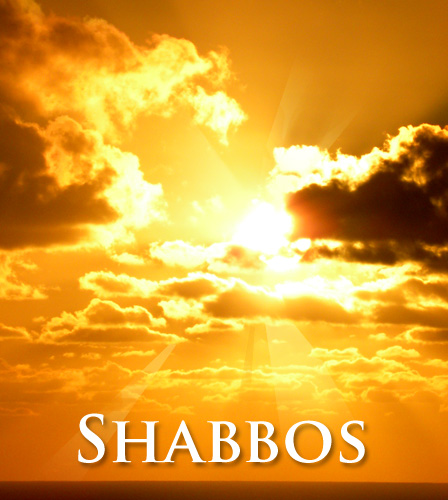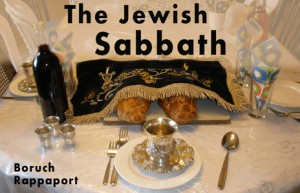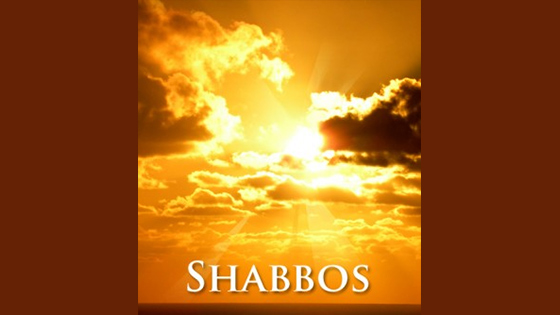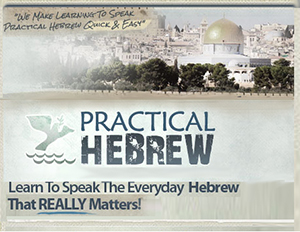Shabbos
I had an insight this Shabbos regarding a question that I have had for many years.
We say in our prayers Friday night, “Likras Shabbos Lechu VeNailchah Ki Hi Mekor HaBrocho”. Doesn’t that sound very much like promoting serving the Creator “al manas lekabail pras”, in order to receive reward? That’s the reason why we’re going to Shabbos, because it is the source of all blessing?

Searching for Jewish Beliefs? Click Here for my main article on Jewish Beliefs.
The Zohar for Shabbos
The Zohar for Shabbos night which is printed in the sidurim and in the Zemiros books, starts out asking a question – the verse says, “Vayevarech E. Bayom HaShevii”, G-d gave blessing on the Seventh Day, yet on the other hand we see that there was no mon, no manna, on Shabbos. If there’s no parnassa on Shabbos, no mon, no shefa, no $gelt, so then where’s the Brocho, where’s the blessing?
The Zohar answers that well known statement, “Kol Bircha’an Dele’aila Ve’Sata BeYoma Sheviah Talyan”, all Brocho above and below are dependant on Shabbos, meaning that on Shabbos comes the Brocho for the whole week.
This is the answer to the question, if Shabbos is a day of Brocho, where is the Brocho, how does the Brocho manifest itself? The answer is that the Shabbos is a day of Brocho because then on Shabbos the Brocho [comes down]/[gets filled up] for the whole week.
The Zohar and Parnassa
 Afterwards the Zohar goes on to ask, lech’ora (it would seem), a second, different question, if Shabbos can give parnassa to the rest of the days, why can’t it give parnassa to itself?
Afterwards the Zohar goes on to ask, lech’ora (it would seem), a second, different question, if Shabbos can give parnassa to the rest of the days, why can’t it give parnassa to itself?
And the Zohar answers this question. The Zohar and Parnassa. I don’t want to go into this question here, because there is an obvious contradiction in the whole thing which requires a resolution, and such a resolution is beyond the scope of this post, rather I want to talk about something else. Maybe if I ever open up a Kabbalah category there will be place to deal with this subject.
Anyway, the Zohar goes on and lengthens its words on the importance, given that Shabbos is a day of Brocho, of making the traditional three meals on Shabbos. That since Brocho needs something on which to be chal, needs something there already in order that blessing should be able to improve and increase it, therefore we make the the three seudos, three meals, since Brocho can’t come down on to an empty table.
Then the Zohar says an interesting thing, that we should make the seudos, because “ha be’ha talya mehaimnusa de’le’aila”, that our emuna in the Aibishter is dependant on making these three seudos. And the Zohar repeats itself thus later also.
Why? Why is our Emuna dependant on making Shabbos Seudos? Ha be’ha talya – if you want to have Emuna, you have to make the three seudos. Why?
I could say: what is it similar to? You have a king in a palace, and that palace is in the capital city, and one day the king decides to make a big celebration, let’s say he’s marrying off his son. So everyone is of course invited, and if you show up you express your loyalty, closeness, and appreciation to the king, and if you don’t, you don’t.
But I think that it is much bigger than that. I will tell you what I think it is similar to – the king writes six postdated checks for every single person in his kingdom, one for each of the next six days. And it doesn’t go in to the account automatically, each day you have to go to the bank and ask them to put in the check in to your account. And the king is so happy that he is writing checks to each one of his constituents that he makes a big feast and invites everyone to the meal. And he says, “don’t do anything now for your parnassa, don’t plow, don’t sow, don’t reap, don’t make clothes, don’t do anything of the things that you do in order to be creative, withdraw your hand from the full lamed tes melachos. Just come to the seudah. Recognize who’s writing the checks, and be happy together with me.” So if you come, then you attach in, you recogize, and you are recognized for your recognition. But if you stay home and work on your parnassa, then you’ve missed the boat.
“Likras Shabbos Lechu Ve’Nailcha, Ki Hi Makor HaBrocho”. Not that we go towards Shabbos in order to get the Brocho. It is in order to recognize, and be recognized that we recognize, that Shabbos is the source of all Brocho. To be happy together with the King when he fills up the six barrels for each of the days of the week.
Let’s go toward Shabbos, “for indeed” it is the source of all Brocho. Not “because” it is the source of all Brocho.






Leave A Response